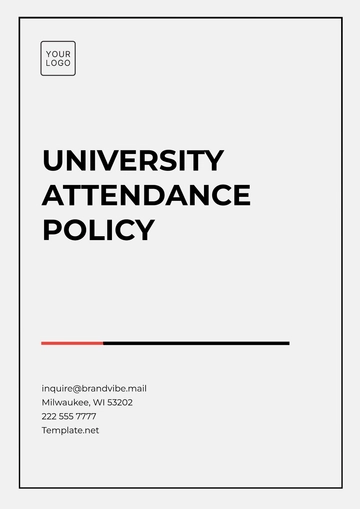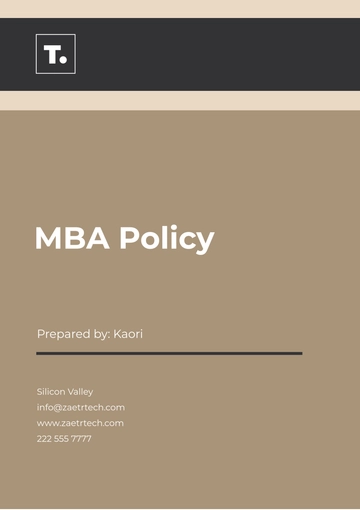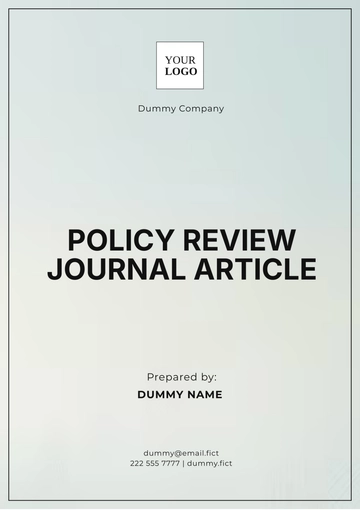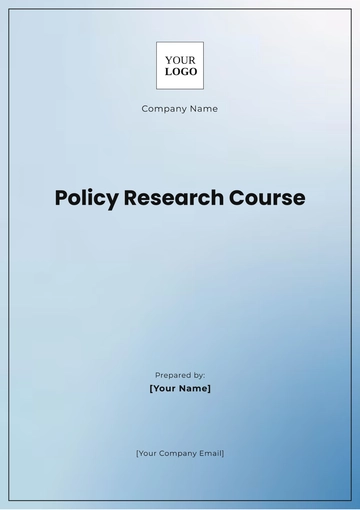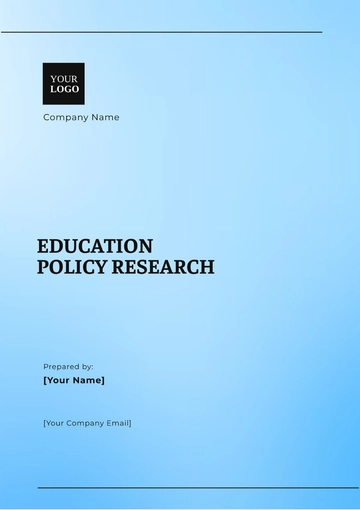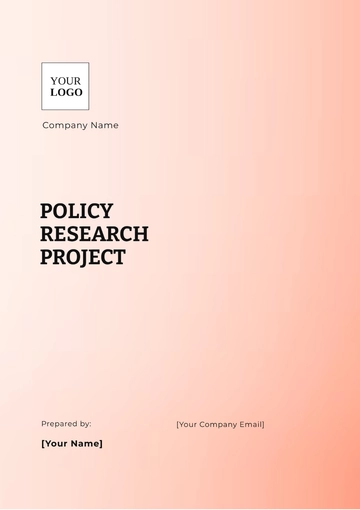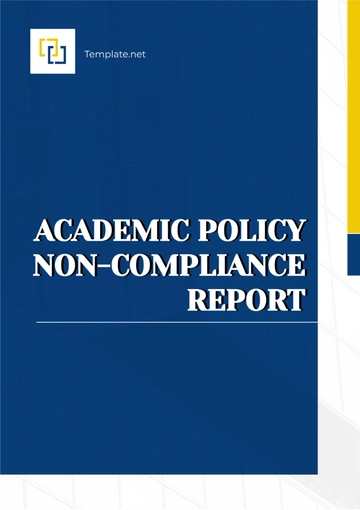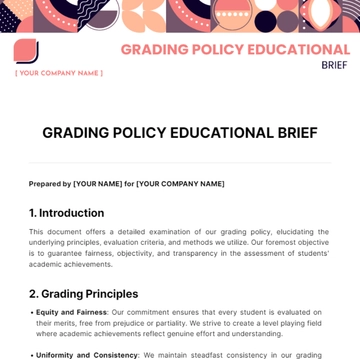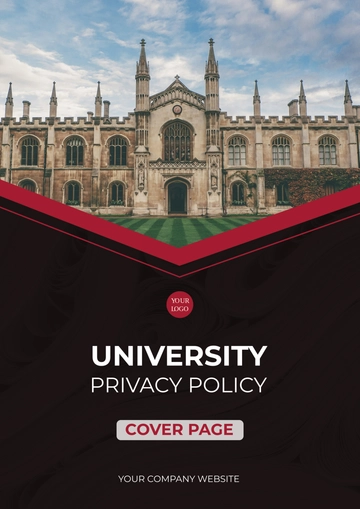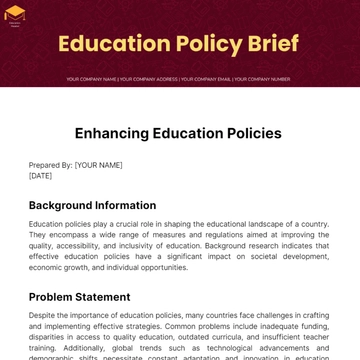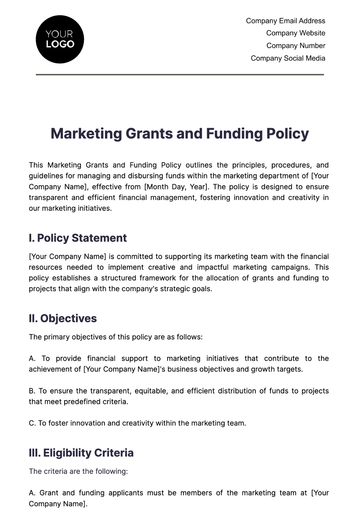Free Policy Review Journal Article
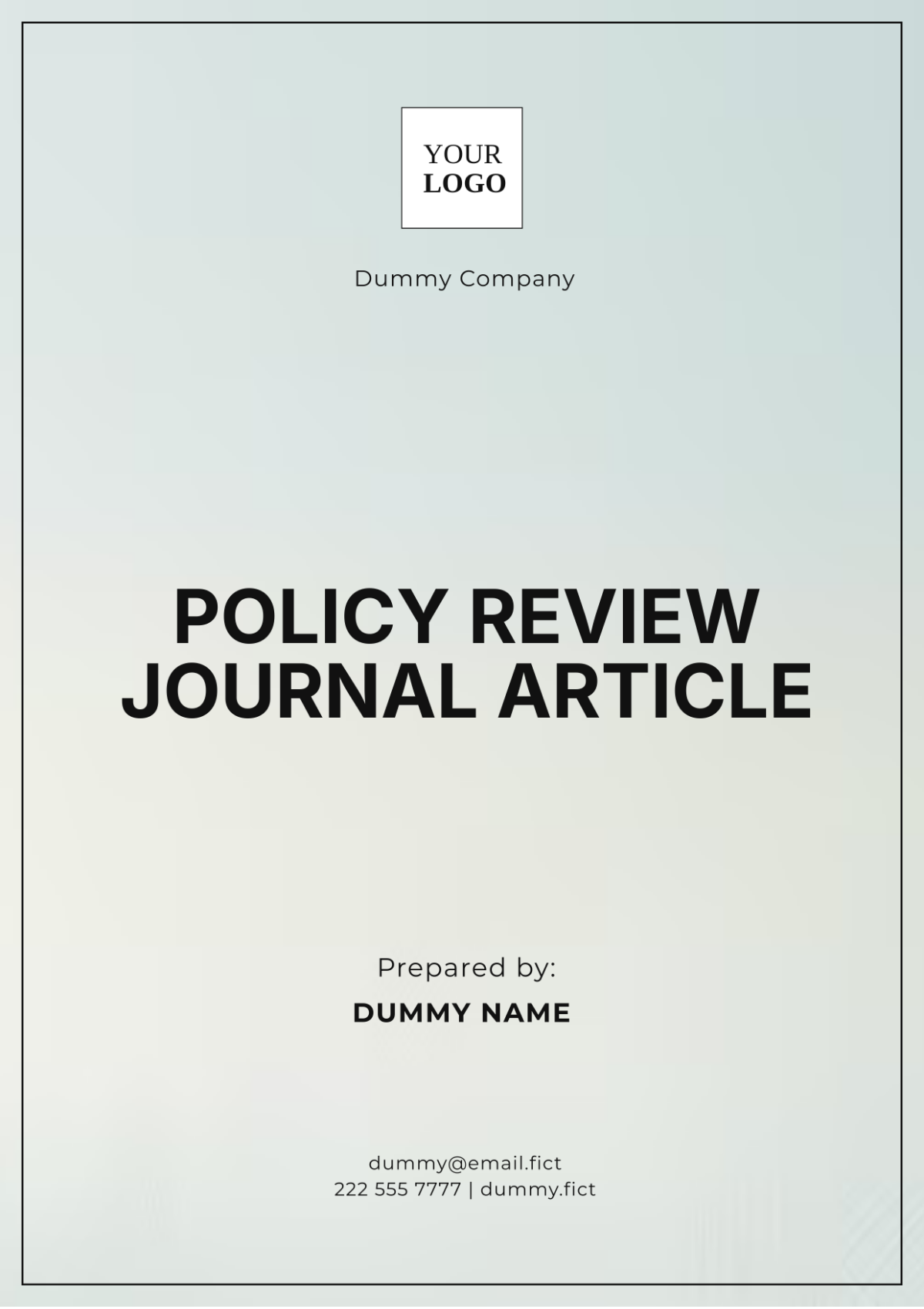
A Comprehensive Analysis of Public Policy Formulation and Implementation
Written By: [Your Name]
Introduction to Policy Review
Public policy plays a central role in shaping the governance of nations and determining the direction of societal progress. Policy reviews serve as critical tools for assessing the effectiveness, efficiency, and relevance of policies after their implementation. A well-conducted policy review ensures that policies meet their intended objectives, adapt to changing circumstances, and contribute to the overall well-being of citizens.
This article provides an expansive analysis of the process, methodology, and significance of policy reviews, focusing on their role in refining public governance. It discusses the stages involved in a policy review, the stakeholders who contribute, and the factors that influence the success or failure of policies. The article also explores real-world case studies to illustrate the nuances of policy review.
The Purpose of Policy Review
Policy review is a methodical examination of existing policies, which serves multiple functions:
Assessment of Impact: One of the primary purposes of a policy review is to measure the outcomes of a policy relative to its goals. It helps determine whether a policy has successfully addressed the issues it was designed to resolve.
Adaptation to Changing Contexts: Policies often need to be adjusted due to economic, social, or technological shifts. A policy review helps identify areas where modifications are required.
Accountability and Transparency: Through regular policy reviews, governments and institutions demonstrate accountability. It ensures that resources are allocated efficiently and that the policy in question adheres to legal and ethical standards.
Learning and Improvement: Policy reviews provide valuable insights for future policymaking. By identifying successes and failures, reviews contribute to a growing body of knowledge that helps refine future policies.
Stages of a Policy Review
A policy review typically follows a structured, step-by-step process that ensures thorough analysis and objective outcomes. The following sections break down the key stages involved.
1. Defining the Scope and Objectives of the Review
The first step is to clarify the scope of the review. What are the specific policies or aspects of the policy being evaluated? Are there particular goals or outcomes to focus on? Defining the scope helps to concentrate efforts on key areas and avoid diluting the review with irrelevant details.
For example, a review of an educational policy might concentrate on measurable outcomes such as student performance, teacher effectiveness, and school resources. Defining the scope also involves setting clear objectives for what the review intends to achieve.
2. Data Collection and Stakeholder Consultation
Once the scope is defined, the next phase involves gathering data. Quantitative data might include statistical reports, surveys, and performance indicators, while qualitative data may involve interviews, focus group discussions, and case studies. Both forms of data are essential in constructing a comprehensive view of the policy's effects.
Stakeholder consultation is another critical element of this stage. Engaging with those affected by the policy—including citizens, advocacy groups, and government officials—provides insights into the real-world impact of the policy and areas for potential improvement.
3. Data Analysis and Interpretation
With data in hand, analysts can begin the process of evaluating the policy’s performance. This stage involves comparing the outcomes with the objectives set at the beginning of the policy cycle. Analysts assess whether the policy has met its goals, and if not, what factors might have contributed to its shortcomings.
Data analysis may involve a range of techniques, from statistical methods to thematic coding of interview responses. A key challenge in this stage is ensuring that the analysis is objective, free from biases, and based on evidence.
4. Formulating Recommendations
After the analysis is complete, the review team must formulate recommendations. These can include:
Adjustments to the existing policy: Recommendations might suggest refining certain aspects of the policy to better meet its goals or adapt to changing circumstances.
Termination of ineffective policies: If a policy is found to be ineffective or counterproductive, recommendations may include discontinuing it in favor of a new approach.
Expansion or replication of successful policies: On the flip side, if a policy is shown to be highly effective, recommendations might involve scaling it up or replicating it in other areas or sectors.
5. Reporting and Dissemination of Findings
Once the review is completed, the findings need to be reported and disseminated to key stakeholders. This can take the form of official reports, briefings to decision-makers, or public releases to ensure transparency. The report should be clear, concise, and accessible, providing decision-makers with actionable insights based on the review.
The dissemination process is critical because it ensures that the review’s findings are put to practical use. A well-disseminated report can guide policy reforms, spur public debate, and influence future policymaking.
Key Factors Influencing Policy Review Success
The success of a policy review depends on several interrelated factors. Understanding these factors is essential for ensuring that reviews contribute meaningfully to policy development and governance.
1. Political Will
One of the most important factors influencing the success of a policy review is political will. Without the commitment of government leaders and policymakers, even the most thorough review may be ignored. Political will is required to implement recommendations and ensure that necessary changes are made based on the findings of the review.
2. Availability of Quality Data
The availability and quality of data are essential for conducting a meaningful review. Inadequate data can skew findings or make it difficult to measure a policy’s impact accurately. To ensure data quality, it is important to invest in robust data collection mechanisms from the start of policy implementation.
3. Stakeholder Engagement
Involving stakeholders throughout the review process enhances the quality of the findings. Stakeholders bring diverse perspectives and insights, helping to identify areas that might otherwise be overlooked. Engaging stakeholders can also build broader support for policy recommendations, making it easier to implement necessary changes.
4. Capacity for Implementation
Recommendations from policy reviews often require significant changes in governance, resources, or organizational practices. The capacity to implement these recommendations is another crucial factor. Without adequate resources or institutional support, even well-founded recommendations may fall short in execution.
Case Studies in Policy Review
1. Education Policy in Finland
Finland’s education reforms have been praised globally for their effectiveness. The success of Finland’s policies has been partly attributed to its rigorous policy review processes. Periodic reviews of the education system have allowed Finland to adjust its approach, leading to continuous improvement in student outcomes and teaching quality. These reviews involve extensive stakeholder engagement, including input from teachers, parents, and students.
2. Environmental Policy in Germany
Germany’s commitment to environmental sustainability is another example of a successful policy review. Regular evaluations of the country’s renewable energy policies have allowed the government to fine-tune its approach, overcoming challenges in energy production and reducing carbon emissions. These reviews focus heavily on data analysis and stakeholder feedback, ensuring that policies remain relevant as technology evolves.
3. Health Policy in the United States
In the United States, the Affordable Care Act (ACA) has undergone multiple policy reviews since its enactment in 2010. These reviews have identified areas of success, such as the expansion of health insurance coverage, as well as areas for improvement, such as rising healthcare costs. The ongoing review process has led to several amendments aimed at enhancing the law’s effectiveness and sustainability.
Challenges in Conducting Policy Reviews
Despite their importance, policy reviews face several challenges. These challenges can hinder the review process or limit its effectiveness in driving change.
1. Political Resistance
In some cases, political resistance can obstruct policy reviews, particularly if the findings challenge the status quo or suggest significant reforms. Political leaders may be reluctant to support recommendations that require unpopular changes, such as budget cuts or shifts in priorities.
2. Data Limitations
Data limitations are another common challenge. In some contexts, there may be a lack of reliable data, making it difficult to evaluate policy outcomes accurately. In such cases, reviewers may have to rely on estimates or incomplete information, reducing the precision of their analysis.
3. Resource Constraints
Conducting thorough policy reviews requires time, expertise, and financial resources. In some cases, governments may lack the necessary resources to conduct a full-scale review, resulting in less comprehensive evaluations. Resource constraints can also limit the capacity to implement recommendations.
Conclusion
Policy reviews are indispensable tools for improving governance and ensuring that policies achieve their intended goals. By systematically evaluating the effectiveness, efficiency, and relevance of policies, these reviews provide valuable insights for policymakers and stakeholders alike. Although challenges such as political resistance, data limitations, and resource constraints can hinder the process, a well-conducted policy review can lead to significant improvements in public policy. As the examples of Finland, Germany, and the United States demonstrate, policy reviews play a vital role in shaping effective and responsive governance in today’s complex world.
- 100% Customizable, free editor
- Access 1 Million+ Templates, photo’s & graphics
- Download or share as a template
- Click and replace photos, graphics, text, backgrounds
- Resize, crop, AI write & more
- Access advanced editor
Analyze policy effectively with Template.net’s Policy Review Journal Article Template. This editable and customizable template provides a structured approach for evaluating and reviewing policy impacts. Editable in our AI Editor Tool, it’s ideal for policy analysts and scholars looking to publish organized, insightful policy reviews. Customize the template to fit your review requirements for a comprehensive, professional analysis.
You may also like
- HR Policy
- Restaurant Policy
- Company Policy
- Accounting Policies and Procedures
- Website Policy
- Privacy Policy
- Safety Policy
- School Policy
- IT and Software Policy
- Law Firm Policy
- Construction Policy
- Interior Design Policy
- Travel Agency Policy
- Education Academic Policy
- Security Policy
- Real Estate Policy
- Expense Policy
- Software Policy
